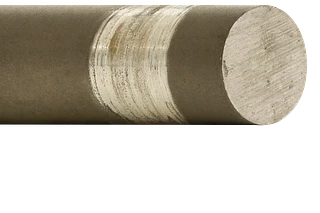Change Language :
Plain bearing wiki

What is iglidur®?
iglidur® are materials developed by igus. They consist of high-performance polymers and are characterised by special specifications. For example, they are particularly wear-resistant or suitable for contact with media and chemicals.
But what are iglidur materials made of? And what is behind the self-lubricating effect? Find out more about the specification and composition of iglidur bearings.

Comparison of different bearing types
There are various bearing types to choose from when selecting the right plain bearing. Each has a different design and its own mode of operation. We have summarised the most important bearing types for you and show you what advantages they have.

Choosing the right shaft material
The right choice of shaft and plain bearing plays a decisive role in a well-functioning bearing system. Plain bearings protect the often significantly more expensive drive shaft and the components surrounding the bearing point from wear. It is therefore particularly important that this wear only occurs in the plain bearing and that it is replaced in good time. However, the shaft is often neglected when designing the bearing position. Find out how to correctly match the two components to each other.

Installation and tolerances
When installing plain bearings, there are a few things to bear in mind that are crucial for fault-free operation and a long service life. Find out everything you need to know about suitable installation and testing methods, clearance design, standard tolerances and the correct securing of plain bearings.

What are hydrodynamic and hydrostatic plain bearings?
What are hydrodynamic and hydrostatic plain bearings? How do these two bearing types work, what are their advantages and what are their typical areas of application? Answers to these questions can be found here.

Largest test laboratory in the industry
What and how is tested?
In the iglidur test area, bearings and materials are tested for stress, wear and friction properties. Other parameters such as high and low temperatures, high load and speed are adjusted depending on the test. There are around 50 test systems in the test laboratory, on which more than 300 parallel tests are carried out. At the same time, we carry out around 11,300 tribological tests on the 250 or so newly developed plastic compounds every year. To ensure that the new formulations prove themselves in later use, they are not only exposed to external influences, but also to different directions of movement and loads - rotating, swivelling, linear, walking.
Frequently asked questions
Consulting
I look forward to answering your questions

Shipping and consultation
In person:
Monday to Friday from 7 am - 8 pm.
Saturdays from 8 am- 12 pm.
Online:
24h
WhatsApp-Service:
Montag – Freitag: 8 – 16 Uhr





